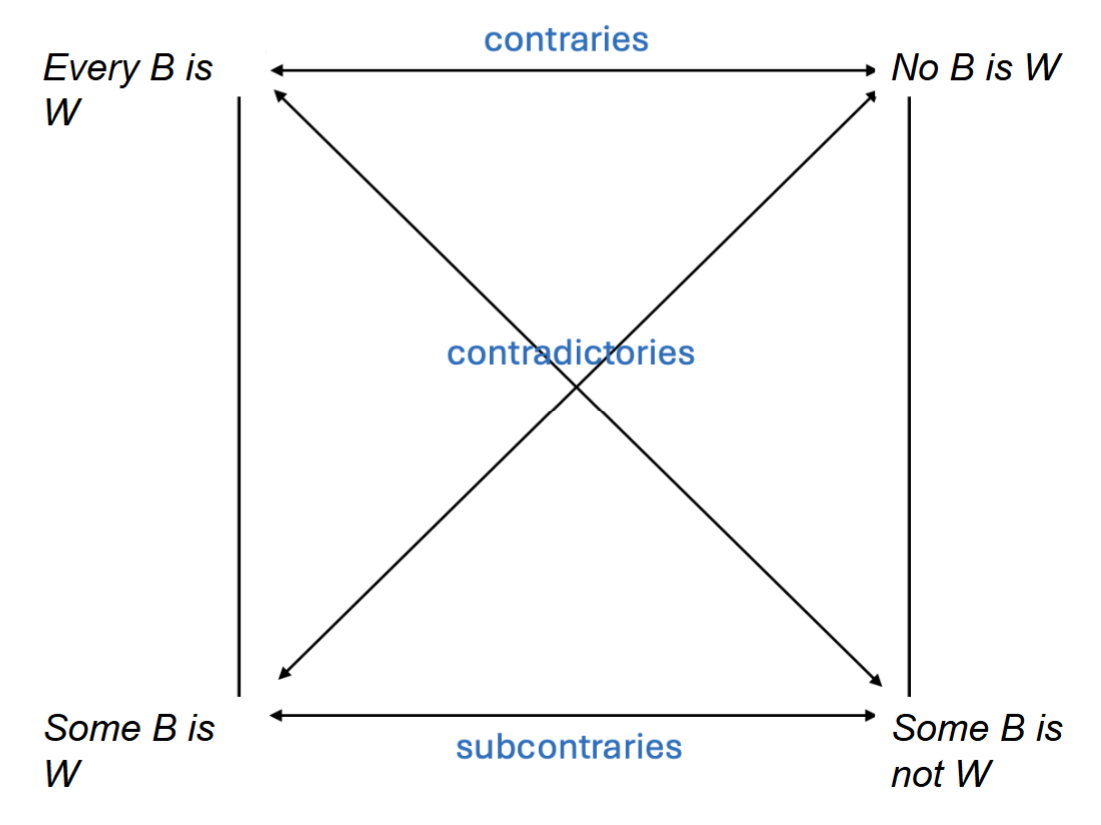semantics exam #2
1/32
There's no tags or description
Looks like no tags are added yet.
Name | Mastery | Learn | Test | Matching | Spaced |
|---|
No study sessions yet.
33 Terms
antonymy
a relationship of incompatibility between 2 terms w/ respect to some given dimension of contrast
gradable antonymy
has a midpoint
ex: hot → lukewarm → cold
non-gradable antonymy
does not have a midpoint
ex: pass/fail, dead/alive
meronymy
- the relation of part to whole
- 6 diff types
-one of the properties is that it is transitive
6 types of meronymy
component-integral object (ex: pedal/bike)
member-collection (ex: ship/fleet)
portion-mass (ex: slice/pie)
stuff-object (ex: steel/car)
feature-activity (ex: paying/shopping)
place-area (ex: Everglades/Florida)
transitivity
when the same type of meronymic relation is involved in all parts of the chain
ex:
A seed is part of a fruit.
A fruit is part of a plant.
A seed is part of a plant.
hyponymy
- a hierarchy of elements
- associated with the phrases: kind/type/sort of
-Hyponym – a lower term in a hyponymic hierarchy
•ex:
A sports car is a hyponym of car
A car is a hyponym of vehicle
- Hyperonym – a higher term in a hyponymic hierarchy
• A vehicle is a hyperonym of car
• A car is a hyperonym of sports car
synonymy
when two words have the same meaning in a given context
ex: smile/smirk
monosemy
a word that has only one sense
ex: adverb, cassette
polysemy
a word that has more than one distinct sense (usually semantically related)
ex:
date
day of the month specified by a number
social or romantic appointment
chair
furniture for an individual to sit in
head of a committee
syllogism
an argument in which a conclusion is deduced from premises
ex:
1. All cats like reality television.
2. Ron is a cat.
therefore
3. Ron likes reality television
premise
an argument’s starting-point; a proposition from which the conclusion follows
conclusion
a proposition deduced from premises by an argument
universal quantifier
all – ∀
a predicate is true of every entity in the domain under discussion
• all, every, each and every, everything
existential quantifier
some – ∃
a predicate is true of at least one entity in the domain under discussion
• some, at least one, something
entailment
the truth of the first proposition guarantees the truth of the second
presupposition
A proposition p presupposes another proposition q if both p and the
negation of p entail q
is true even when its trigger is false
ex:
Bonnie recently stopped smoking
Bonnie was a smoker
Contradictory
If one proposition is true, the other must be false; & vice versa
ex:
(1a) Titanic won Best Picture in 1998.
(1b) Titanic did not win Best Picture in 1998
Contrary
Two propositions can both be false at the same time but they cannot be simultaneously true
ex:
(1a) Maria is happy.
(1b) Maria is sad.
subcontrary
Two propositions can both be true at the same time but they cannot be simultaneously false
ex:
(1a) Some people are happy.
(1b) Some people are not happy
square of opposition

valid & sound argument
the premises are true
valid & unsound argument
at least one of the premises is false
invalid argument
the conclusion of an argument cannot logically be derived from the premises
negation operator
not - ¬
a sentence contains denial or negation
ex:
p Glinda is telling the truth.
¬p Glinda is not telling the truth
conjunction operator
denotes the union, or conjunction of two propositions - &
and, but, although, in spite of
ex:
p Elphaba is the Wicked Witch.
q Glinda is the Good Witch.
p & q Elphaba is the Wicked Witch, [conj.] Glinda is the Good
Witch.
exclusive disjunction operator
only one of the disjuncts applies, but not both
Symbol: X-OR
ex:
Jim loves Pam or Karen (but not both).
p Jim loves Pam
q Jim loves Karen
p X-OR q
inclusive disjunction operator
both of the disjuncts applies - V
ex:
People were wearing hats, or they had put on sunscreen.
• There is the possibility that some people were wearing both hats and
sunscreen → inclusive
p People were wearing hats
q People had put on sunscreen
p ∨ q
material conditional operator
corresponds roughly to if...then - ⊃
ex:
If there’s no one at the counter, then the museum is closed.
p There’s no one at the counter (antecedent)
q The museum is closed (consequent)
p ⊃ q
one-place predicate
predicates with one argument
can only be associated with one single variable at a time
ex:
Ron (r) is a cat (C)
Cr
two-place predicate
predicates with two arguments
ex:
Ron fought Harry
• F – ‘to fight’
• Fr, h
three-place predicate
predicates with 3 arguments
ex:
Tina (t) gave (G) the book (b) to Linda (l)
Gt, b, l
individual constant
the individual entity which the constant picks out in the world
ex:
h, s, g, p
h = Henry
s = Shannon
g = Gabriela
p = Patrick